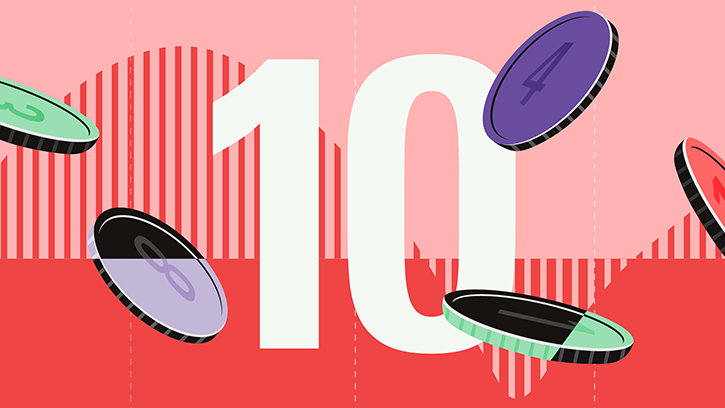
Japan’s stock market was at the centre of the global selloff at the start of last week, with the Nikkei index registering its worst ever points fall on August 5, losing 12% in one trading session. Where does this bout of volatility leave UK investors with Japan exposure? And how are fund managers reacting to the turbulence?
While market conditions have since stabilised, market watchers now have a keen eye on the country’s stock and currency markets and monetary policy for the rest of the year.
The latest volatility was sparked by a sudden appreciation in the Japanese yen against the dollar, a technical trading factor known as the “carry trade”.
This selloff came after a number of very strong years of performance for Japanese stocks, which have been helped by the domestic currency hitting multi-decade lows against the dollar. The chart below shows the return of the Morningstar Japan Index in US dollars over five years, a period that includes the pandemic and the bull run since October 2022 – a period that has coincided with further weakness in the yen. The majority of funds available to UK investors are still in positive territory for the year, as is the index, which is less than 1% higher year to date. Further stock market weakness could erode these gains for 2024.
Richard Kaye, portfolio manager of the Gold-rated Comgest Growth Japan, is not overly concerned by tumbling share prices. He tells Morningstar the yen rally was “the quickest normalisation I can remember”, arguing that the stock market selloff was more of a rotation out of index-heavy sectors such as banks and “yen plays” – stocks dependent on ongong weakness in the domestic currency.
"In our view, it's the preceding two years which were irregular, and the last two days are just a correction of that,” he adds.
A Buying Opportunity for Overseas Investors?
Kaye has previously avoided buying Japanese banking stocks and his portfolio remains focused on drivers of social infrastructure change, as well as suppliers of essential technology from semiconductors to components. The large caps such as banks and exporters suffered in the selloff, but Kaye is focusing on stocks lower down the capitalisation scale.
"We have a roughly 30% small- and mid-cap weight which we are reinforcing and which we expect to benefit significantly from the stronger or normalised yen as US yields come down."
Hiroyuki Ueno, chief strategist at asset manager SuMi Trust, believes the drawdown provides an opening for new buyers previously unable to tap Japanese stocks at recent lofty valuations.
"Overseas investors who were waiting for yen appreciation to slow are taking advantage of the current market volatility to enter the market,” he told Morningstar.
"There is a possibility that Japanese companies will use their ample cash reserves to initiate share buybacks during this period. If that becomes a reality, it will give a positive effect on market sentiment who have been rattled by the volatility seen in August."
There could also be interest from domestic buyers, he adds. In 2024, the upper limit of the tax exemption scheme called NISA, which is like ISA in UK, was increased, triggering greater subscription flows into the market by Japanese retail investors.
Investors Wake Up to Higher Japan Rates
For Carl Vine, portfolio manager of the Morningstar Bronze-Rated M&G Japan, the volatility experienced in the Japanese market showed that investors had finally woken up to the fact that rates would not be at zero forever. The Bank of Japan increased interest rates in early August, the second such time it had done so this year; previously the central bank had not raised interest rates for 17 years.
"As is typical of such 'volatility fits', correlations in both the downdraft and the recovery tends to be very high. The opportunity for the investor, then, is to either find ‘baby-with-the-bathwater’ situations or to add portfolio beta,” he wrote in a note.
"In our case, we have used both playbooks. We have added to some names where undue selling was seemingly illogical and related purely to contagion. We have also tilted modestly away from defensive names towards names that were being sold indiscriminately," he said.
Vine had expected the normalisation of interest rates in Japan after over two decades of experimental policy to lead to market turmoil.
However, he welcomed the volatility, which has pushed the price of ownership of Japan stocks down despite the “robust fundamentals” of the Japanese stock market.
Japan: A Divided Stock Market
James Salter, CIO of Zennor Asset Management and manager of the Neutral-rated Zennor Japan, wrote in a note that the stronger yen will lead to a bifurcated market which will benefit some Japanese stocks over others.
"I suspect the 'winners' of last year [will] bounce short-term but thereafter struggle. Many of these names are yen sensitive and exposed to the global economic cycle. Our portfolio, however, remains very domestically orientated. We will nibble at some existing names that have pulled back but are cognisant that the deleveraging may have further to go."
Nonetheless, he does not expect the selloff and the yen’s appreciation to have a radical impact on Japanese competitiveness, arguing that investors will be better able to access world leading companies undergoing a corporate governance revolution at lower prices.





























